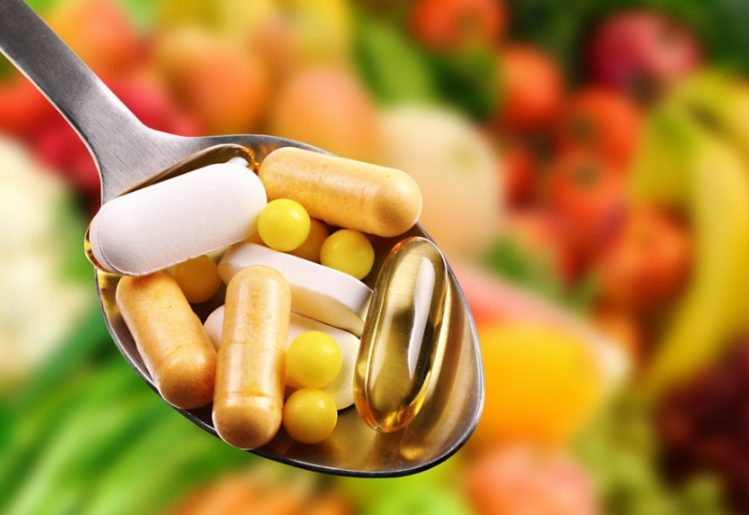Fat-Soluble Vitamins: Everything You Need to Know
There are two primary types of vitamins: those that dissolve in water and those that dissolve in fat. Fat-soluble vitamins, or those that don't dissolve in water, should be taken along with some dietary fat in order to obtain the most benefits. After the supplement has dissolved, the vitamins contained within it are delivered to the liver and to fatty tissues throughout the body. These vitamins will be stored in these locations until the body needs them.
Here is everything you need to know about fat-soluble vitamins, so you can choose a vitamin supplement that will provide you with the best health benefits.
Which Vitamins are Fat-Soluble?
 There are four specific vitamins that are fat-soluble: vitamins A, D, E and K. Each one of these vitamins provides different health benefits and your body needs a daily supply of them to function properly. While these vitamins are found naturally in foods, it may be necessary to take a supplement to ensure you're getting a sufficient supply of each vitamin. However, it's equally important to not overdo it. Since these vitamins are stored in the liver, ingesting too much of any of these vitamins can lead to liver toxicity. This is why it's important to check with your doctor before starting a new vitamin supplement if you have a medical condition or are taking prescription medication.
There are four specific vitamins that are fat-soluble: vitamins A, D, E and K. Each one of these vitamins provides different health benefits and your body needs a daily supply of them to function properly. While these vitamins are found naturally in foods, it may be necessary to take a supplement to ensure you're getting a sufficient supply of each vitamin. However, it's equally important to not overdo it. Since these vitamins are stored in the liver, ingesting too much of any of these vitamins can lead to liver toxicity. This is why it's important to check with your doctor before starting a new vitamin supplement if you have a medical condition or are taking prescription medication.
If you want to add fat-soluble vitamins to your diet, they can each be found in a variety of foods. Vitamin A can be found in butter, animal liver and fish liver oil. Vitamin D is separated into two groups. D3 is found in animal fat, while D2 is common in many types of plants. For instance, mushrooms are a good source of vitamin D2. Vitamin E is found in almonds, hazelnuts, sunflower seeds and oil and wheat germ oil. Vitamin K can be found in kale, parsley, spinach, liver, egg yolk and butter.
How Do Fat-Soluble Vitamins Differ From Water-Soluble Vitamins?
While vitamins that are fat-soluble are stored in the body for later use, water-soluble vitamins are used immediately. As soon as the water in the body dissolves the vitamins, they are instantly distributed to the parts of the body that can use them. This means you'll need to ingest a higher supply of these vitamins to ensure your body has a sufficient quantity of them when needed.
Another difference is that water-soluble vitamins don't represent a danger to the liver. While fat-soluble vitamins are stored in the liver and fatty tissue, water-soluble vitamins are never stored. If you take more than the recommended daily allowance of a water-soluble vitamin, the body will expel the excess amount through the urine. This is why your urine may change color if you take too much of certain water-soluble vitamins. In some cases, taking too much of a water-soluble vitamin may also cause you to experience diarrhea.
There are more vitamins that are water-soluble than fat-soluble. Water-soluble vitamins are:
- vitamin B1 (thiamine)
- vitamin B2 (riboflavin)
- vitamin B3 (niacin)
- vitamin B6 (pyridoxine)
- folate (folic acid)
- vitamin B12 (cobalamin)
- biotin
- pantothenic acid
- vitamin C (ascorbic acid)
It should be noted that a healthy diet won't cause you to overload on vitamins that are fat-soluble or water-soluble. This is something that only occurs when taking too much of a quality multivitamin. In addition to consulting your doctor before starting a new supplement, it's important to read the label and follow the recommended dosages. This will ensure you won't be taking more than your body needs.
The Benefits of Taking a High-Quality Multivitamin Supplement
 Taking a quality multivitamin that includes daily allowances for both fat-soluble and water-soluble vitamins can help you ensure you won't suffer a vitamin deficiency. When taking a high-quality multivitamin you'll be able to enjoy a broad range of health benefits. Some common benefits of the most crucial vitamins are listed below:
Taking a quality multivitamin that includes daily allowances for both fat-soluble and water-soluble vitamins can help you ensure you won't suffer a vitamin deficiency. When taking a high-quality multivitamin you'll be able to enjoy a broad range of health benefits. Some common benefits of the most crucial vitamins are listed below:
Vitamin A: The primary benefit of vitamin A is in promoting healthy vision, but it can also be effective in fighting acne and other skin disorders.
Vitamin D: This vitamin is essential to bone health, making it especially beneficial to those at a risk of developing osteoporosis. Vitamin D also helps keep the teeth strong and healthy.
Vitamin E: Recognized as an antioxidant, vitamin E can help fight off the free radicals that exist throughout the body. It also boosts heart health, skin health and blood circulation.
Vitamin K: A good supply of vitamin K will help blood clotting, so you won't bleed too much from minor injuries. The blood clotting this vitamin helps to promote is also helpful in preventing excessive menstrual blood flow.
Vitamin B1: Promotes stronger energy levels and keeps the nervous system in good condition.
Vitamin B2: This is another vitamin that promotes healthy skin and vision.
Vitamin B3: Regulates the metabolism and improves digestion. It also helps promote good enzyme functioning.
Vitamin B6: Aids in the production of red blood cells, hemoglobin and insulin.
Folate: Helps protein metabolism, while also promotes the production of red blood cells.
Vitamin B12: In addition to regulating red blood cell production, this vitamin also helps keep the nervous system functioning properly.
Pantothenic Acid: Regulates hormone production and metabolism.
The body relies on a steady supply of vitamins, which is why eating a healthy diet is so important. The vitamin intake you receive from eating healthy foods can be supplemented by taking a quality multivitamin. Together, good food and a daily supplement will help you give your body the vitamins it needs to stay healthy and strong.




